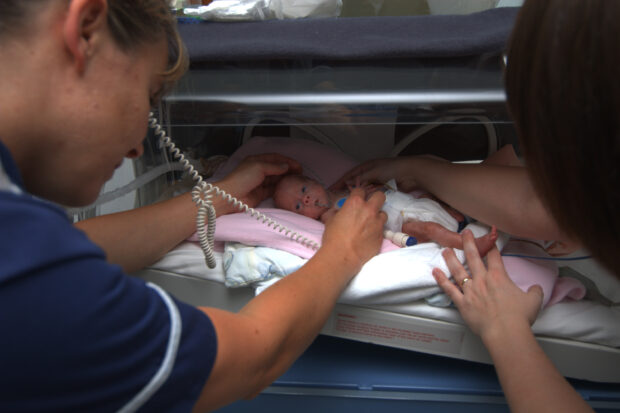
Newborn screening programmes help identify babies with serious conditions early so they can be treated as soon as possible. Early treatment improves long-term health outcomes and, for some conditions, even prevents death.
One in 9 babies in England is born needing neonatal care. Newborn screening in non-maternity settings such as neonatal intensive care units (NICUs), paediatric intensive care units (PICUs) and children’s hospitals can be challenging. The complex and serious clinical needs of these babies may mean more ‘routine’ aspects of care like newborn screening can be missed or delayed.
PHE screening and immunisation leads (SILs) developed and conducted a survey in February 2017 looking at how the newborn blood spot, newborn hearing and newborn and infant physical examination screening programmes are delivered in neonatal units across England.
The report of the findings of that survey highlights that newborn screening in NICUs is safer where:
- a named person is responsible for newborn screening
- there is good communication between NICUs and maternity services
- there are checks for completion of screening at different stages – for example at admission and on discharge
- there are good IT systems that ‘talk to each other’
Please help us to share the learning from this report by encouraging newborn screening provider and commissioner colleagues to download and read it.
PHE Screening blogs
PHE Screening blog articles provide up to date news from all NHS screening programmes. You can register to receive updates direct to your inbox, so there’s no need to keep checking for new blogs.